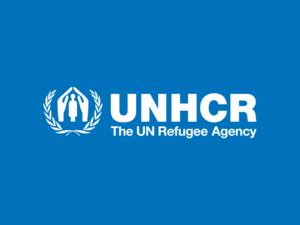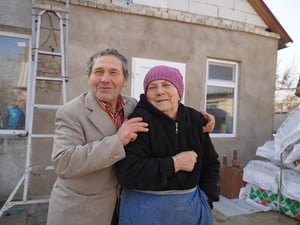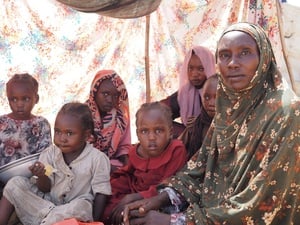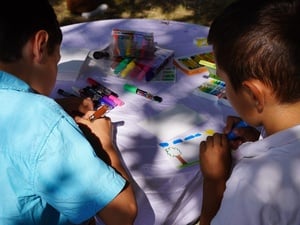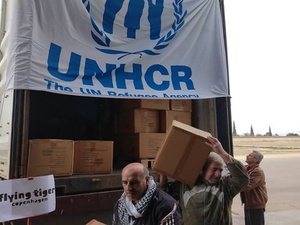New green UNHCR initiative to transform refugees’ access to clean water
New green UNHCR initiative to transform refugees’ access to clean water
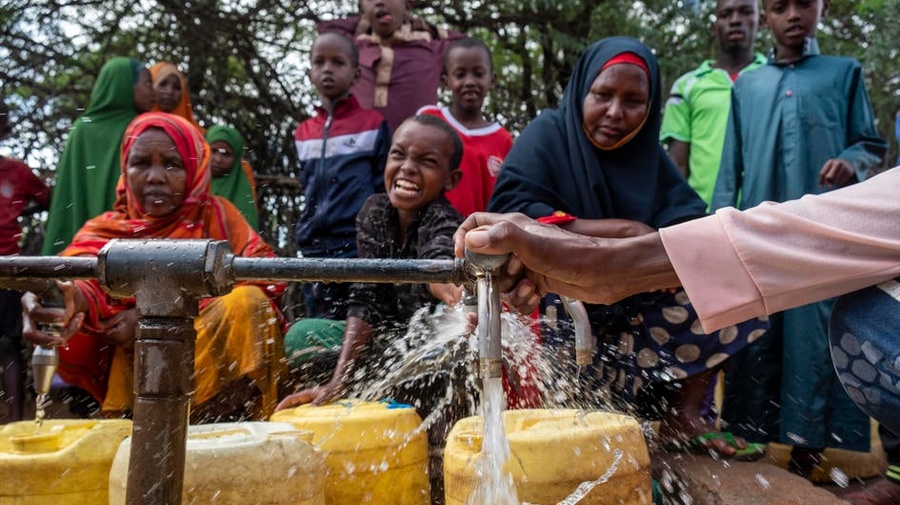
Somali refugees collect water from a waterpoint in Hagadera camp, Dadaab. © UNHCR/Sebastian Rich
A new initiative, launched today, will substantially improve the way in which clean water is provided in refugee communities. Set up by UNHCR, the UN Refugee Agency, with generous funding from the Grundfos Foundation and the Danish and German governments, Project Flow will replace diesel-run pumps with solar-powered water pumps in six climate-vulnerable countries across Africa. This will benefit up to 800,000 refugees and host community members and drastically reduce CO2 emissions.
“Addressing the challenges related to climate change and forced displacement are two key priorities for Denmark. Project Flow is an innovative way to secure access to clean energy and water for refugees, internally displaced and their host communities. Denmark is thrilled to be part of the initiative together with the Grundfos Foundation. It is a model of the public and private sector coming together with much-needed expertise to lead the green transition with a long-term perspective for the communities involved,” says Flemming Møller Mortensen, Minister for Development Cooperation, Denmark.
“At the Grundfos Foundation we believe that clean drinking water is a basic human right. Providing access to clean water for refugees and forcibly displaced people in an environmentally, financially and socially sustainable way is a core part of our strategy and Project Flow will do exactly that. Our partnership with UNHCR on this innovative project will radically transform the way in which clean water is provided in refugee communities and will have long-term systemic impact,” says Kim Nøhr Skibsted, Executive Director of the Grundfos Foundation.
Solarizing diesel-powered boreholes will reduce both CO2 emissions and local air pollution levels. Approximately 180,000 tons CO2 emissions will be avoided over a 10-year period as a direct result of Project Flow.
Due to the remote areas and fragile situations where many refugee communities are located, water delivery in these communities is largely powered by fossil fuels. This is neither environmentally nor economically sustainable. However, it can be challenging to switch to solar energy as solar-powered water pumps have high up-front capital expenditures.
As a revolving fund mechanism, Project Flow invests in the capital expenditure, design, installation and ongoing maintenance of solar systems for water pumps. Once installed, solar or hybrid systems generate yearly savings compared to those run on diesel. These savings will be re-invested in new clean energy systems, thereby multiplying the available funding and supporting multiple refugee communities over time to green their infrastructure.
“Recently we passed the horrific milestone of 100 million people having been forcibly displaced. The majority are hosted in some of the most environmentally sensitive, desolate and climate vulnerable places in the world. The impacts of the climate emergency are growing exponentially, and it is the most vulnerable, including those already displaced, that are bearing the brunt of this on-going disaster – and they increasingly have nowhere to escape to. Supporting communities in often very remote locations, on the front lines of not only conflict but also an increasingly hostile climate, requires strong, committed partnerships, reinforced by concrete actions such as Project Flow. We are very grateful for the generous financial support from the Grundfos Foundation and the Danish and German governments,” says Andrew Harper, UNHCR Special Advisor on Climate Action.
The first 10 million USD phase of Project Flow will solarize an estimated 100-160 water systems and boreholes. This will benefit refugees and host community members in climate-vulnerable countries across Africa, likely Ethiopia, Mauritania, Rwanda, Sudan, South Sudan and Zambia. Solarization of a small number of schools and health clinics will also be piloted as part of this first phase.
Project Flow is part of UNHCR’s Strategic Framework for Climate Action in response to the growing global climate emergency and is a key initiative under UNHCR’s Operational Strategy for Climate Resilience and Environmental Sustainability 2022-2025.


